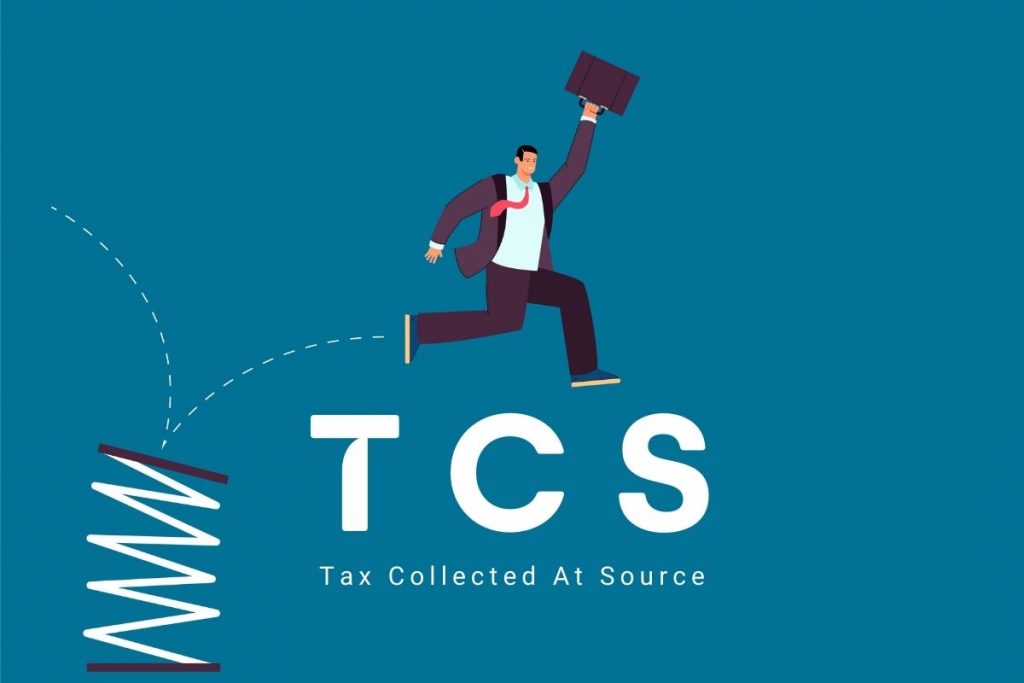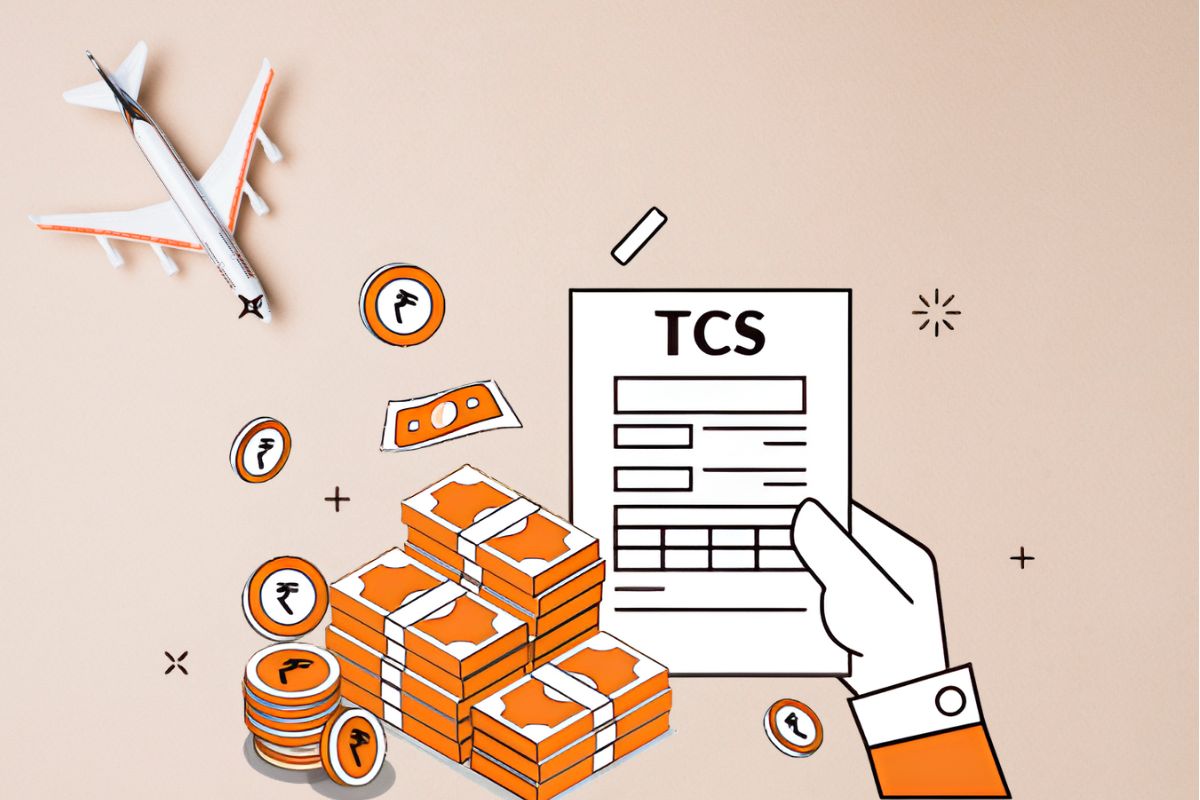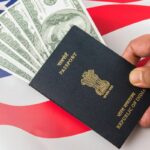Planning an exciting international vacation can be an exhilarating experience, but it’s important to stay informed about the latest regulations that may impact your travel expenses. One such regulation is the implementation of a 20% Tax Collected at Source (TCS) on overseas tour packages, effective from July 1, 2023.
This means that if you intend to book a foreign trip through an Indian travel agent or an online travel aggregator, you will now be required to pay an additional 20% in taxes.
What is TCS?
Tax Collected at Source (TCS) is a tax levied by the Indian government on certain transactions at the time of receipt. It is an indirect tax where the responsibility for collecting the tax is imposed on the seller or service provider, who collects the tax amount from the buyer or service recipient and remits it to the government.
What are the goods and services that are subject to TCS?
TCS is applicable to various transactions and categories, including but not limited to:
1. Sale of goods: TCS is imposed on the sale of specified goods like alcoholic liquor, scrap, minerals, etc. Certain thresholds and rates apply to different categories of goods.
2. Receipt of certain payments: TCS may be applicable on specific payments received such as rent, commission, professional fees, brokerage, and more. These thresholds and rates are determined by the nature and amount of the payment.
3. Overseas tour packages: Starting from July 1, 2023, a 20% TCS will be imposed on the purchase of overseas tour packages. This tax is levied on the total cost of the package, including flights, hotels, and other travel-related expenses.
Must Read: No 20% TCS On International Card Transactions up to Rs 7 LakhHow to Avoid the 20% Tax on Overseas Tour Packages

Fret not! There are effective strategies you can employ to avoid the burden of this TCS. Let’s delve into three key methods that can help you navigate these new regulations and potentially save you a substantial amount of money:
1. Use an International Debit or Credit Card
If you book your tour package directly through an international website and pay for it with an international debit or credit card, you will not have to pay TCS. The finance ministry has said that no TCS will be levied on individual payments using international debit or credit cards of up to Rs 7 lakh in a financial year.
2. Book your flights and hotels separately
If you book your flights and hotels separately, you will not have to pay TCS. This is because TCS is only levied on overseas tour packages, which are defined as a combination of two or more travel-related services.
3. Buy foreign currency before June 30, 2023
If you plan ahead and exchange your foreign currency before June 30, 2023, you can avoid the TCS on the amount you exchange. The Reserve Bank of India allows travellers to purchase foreign currency up to 60 days prior to their travel date without incurring TCS charges.
While these three methods provide viable solutions, it’s worth noting that alternative strategies may also exist. Conducting thorough research and exploring additional possibilities can help you uncover the best approach to circumvent the TCS on your overseas tour package.
As you plan your travel, keep the following details in mind:
- The TCS applies to the entire tour package, encompassing expenses such as flights, hotels, and other travel-related costs.
- The responsibility of collecting the TCS lies with the travel agent or online travel aggregator, and the tax amount is non-refundable to the travellers. However, one can get it back at the time of filing the Income Tax.
- The TCS is a government tax that contributes to funding various government programs.
Who is liable to pay TCS?
The responsibility to pay TCS falls on the seller or service provider who is receiving the payment. In the case of overseas tour packages, the TCS is collected by the travel agent or online travel aggregator from the traveller. The TCS is calculated at a rate of 20% of the total cost of the tour package. The TCS amount is then remitted to the government.
How to claim a refund for TCS?
If you have paid TCS on an overseas tour package, you can claim it back as a refund. To do this, you will need to file an income tax return and claim the TCS as a deduction.
Here are the steps on how to claim TCS back:
- File your income tax return.
- In the income tax return, you will need to fill out a section called “Deductions and Exemptions.”
- In the “Deductions and Exemptions” section, you will need to select the “Tax Collected at Source (TCS)” deduction.
- You will then need to provide the details of the TCS that you paid. This includes the amount of TCS that you paid, the date that you paid the TCS, and the name of the travel agent or online travel aggregator that you paid the TCS to.
- If you have all of the required documentation, you can then file your income tax return.
The government will then process your claim and issue you a refund. The refund process can take a few weeks or months, so be patient.
Here are some additional things to keep in mind when claiming TCS back:
- You can only claim TCS back if you have paid the TCS to a registered travel agent or online travel aggregator.
- You can only claim TCS back for overseas tour packages that were purchased after July 1, 2023.
- You can only claim TCS back for the amount of TCS that you actually paid.
Bottomline
By staying informed about these new TCS regulations and implementing the strategies mentioned above, you can ensure a smoother travel experience while keeping your finances in check. So, embark on your international adventure with confidence, knowing that you’ve taken the necessary steps to avoid paying unnecessary taxes and maximize your savings.
Disclaimer: The information in this article is based on the research that we have done. However, We are not a tax advisor, and the information in this article should not be construed as tax advice. If you have any questions about TCS, you should consult with a tax advisor.I hope this helps!
Follow and connect with us on Facebook, Twitter, LinkedIn, Instagram and Google News for the latest travel news and updates!





